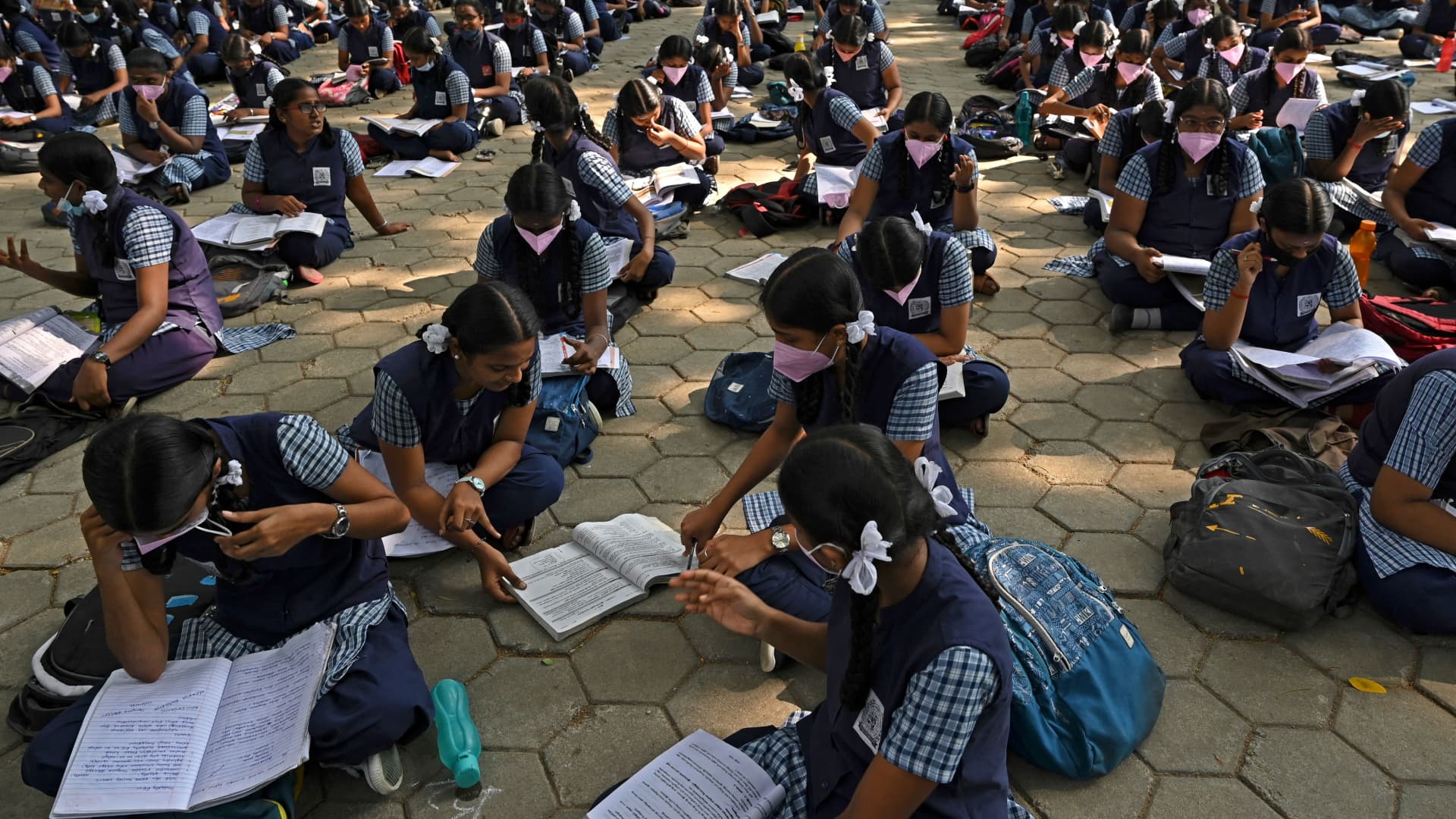
The amount spent on financing education doesn’t match the view that education is important, said Priyadarshani Joshi, a research officer on UNESCO’s Global Education Monitoring Report team.
Nobody would argue that education isn’t important, “but the money does not seem to add up,” Joshi told CNBC’s Squawk Box Asia last Friday as she spoke about the GEM report published by the United Nations agency in April.
About $4.7 trillion is spent on education worldwide annually, with only 0.5% of that spent in low income countries, according to the 2019 edition of the GEM Report.
Joshi said that for a long time, the GEM Report would show how the annual financing gap needed for basic education could be “matched by like three days of military spending.”
Education is one of the most cost-effective ways to train or empower women, to empower their communities.
Priyadarshani Joshi
UNESCO’s Global Education Monitoring Report
‘Gendered consequences’
“Education is one of the most cost-effective ways to train or empower women, to empower their communities,” said Joshi, who stressed that women in low income nations are disproportionately affected by inadequate education financing.
That was borne out during the Covid-19 pandemic, as boys and girls in developing countries did not face the same level of setbacks when schools were closed, she added.
Girls faced “gendered consequences” such as lack of access to electronic devices, limited time use and early pregnancy risks, she said.
Despite the gender gap in school enrolment and attendance declining over the past two decades, illiteracy among women from developing nations is still a problem.
Arun Sankar | Afp | Getty Images
While parents in countries like Bangladesh, Jordan and Pakistan were reluctant to give girls access to smartphones, “boys had slightly better access … which may have helped with their learning continuity.”
She said there’s a need for “very basic things” in education for girls, such as better textbooks, gender-sensitive training and leadership role modeling, which are worth “a few million and a few billion that could probably add trillions to the global economy.”
Teachers also bore the brunt of school closures as many were forced to leave their jobs or had a salary cut.
“Teaching is a very feminized profession. So in many countries, teachers really suffered,” said Joshi, who explained how countries with a high private market share in education — such as India — saw major disruptions as teachers “lost their jobs or are getting paid less.”
Illiteracy
The gender gap in school enrolment and attendance has narrowed over the past two decades, but illiteracy among women in developing nations is still a problem.
Approximately 771 million adults lacked basic literacy skills in 2020, with females accounting for 63% of all illiterate adults, the report said.
The gender gap in adult literacy was largest in Central and Southern Asia and sub-Saharan Africa.
“Slow progress in raising literacy rates means that, in absolute terms, the number of illiterate people has hardly changed,” UNESCO said.




